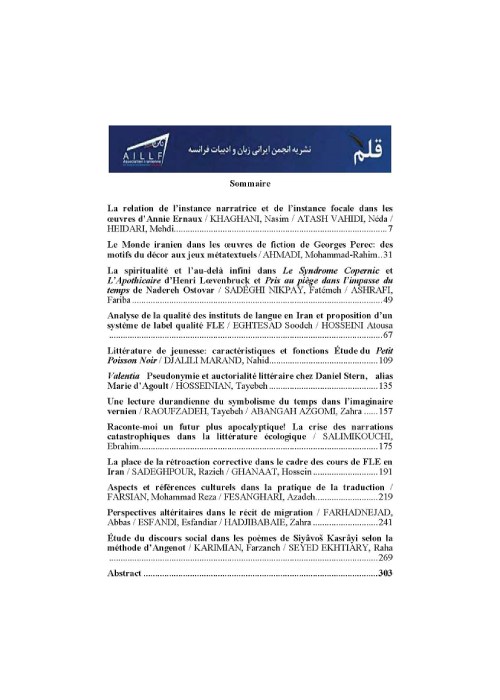Lexical and descriptive contrasts in Maupassant's fantastic short stories
Author(s):
Abstract:
Generally labeled as fantastic in nature, Maupassant’s short stories pose a serious problem. The very term “fantastic” is itself ambiguous; there have been many attempts to define what makes a work of literature “fantastic” in nature, but none of these attempts have managed to capture the essence of the genre in its entirely. What is most striking in Maupassant’s narratives is precisely his rejection of the fantastic almost as soon as it occurs. His texts contain as many attempts at rational explanation of the irrational as they do strange events which lie outside of reason’s domain. In order to create the “fantastic”, Maupassant uses different strategies. He introduces different types of contrast (both in lexical and descriptive level). He produces explanations for strange events. In order to achieve this, he uses different metaphors. However the presence of contradictory elements does not affect the coherence of the story, and therefore, the reality of the short story will remain untouched.
Keywords:
novel , fantastic , realism , lexical , descriptive contrasts , Maupassant
Language:
French
Published:
Plume, Volume:5 Issue: 10, 2010
Page:
5
magiran.com/p705396
دانلود و مطالعه متن این مقاله با یکی از روشهای زیر امکان پذیر است:
اشتراک شخصی
با عضویت و پرداخت آنلاین حق اشتراک یکساله به مبلغ 1,390,000ريال میتوانید 70 عنوان مطلب دانلود کنید!
اشتراک سازمانی
به کتابخانه دانشگاه یا محل کار خود پیشنهاد کنید تا اشتراک سازمانی این پایگاه را برای دسترسی نامحدود همه کاربران به متن مطالب تهیه نمایند!
توجه!
- حق عضویت دریافتی صرف حمایت از نشریات عضو و نگهداری، تکمیل و توسعه مگیران میشود.
- پرداخت حق اشتراک و دانلود مقالات اجازه بازنشر آن در سایر رسانههای چاپی و دیجیتال را به کاربر نمیدهد.
In order to view content subscription is required
Personal subscription
Subscribe magiran.com for 70 € euros via PayPal and download 70 articles during a year.
Organization subscription
Please contact us to subscribe your university or library for unlimited access!



